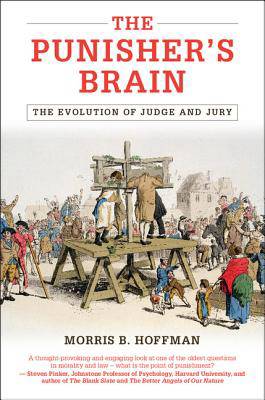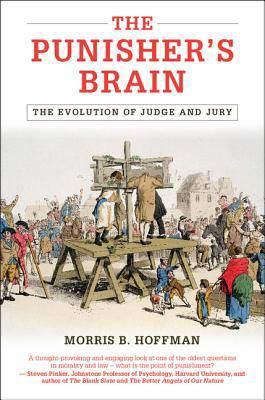
- Afhalen na 1 uur in een winkel met voorraad
- Gratis thuislevering in België vanaf € 30
- Ruim aanbod met 7 miljoen producten
- Afhalen na 1 uur in een winkel met voorraad
- Gratis thuislevering in België vanaf € 30
- Ruim aanbod met 7 miljoen producten
Zoeken
Omschrijving
Why do we punish, and why do we forgive? Are these learned behaviors, or is there something deeper going on? This book argues that there is indeed something deeper going on, and that our essential response to the killers, rapists, and other wrongdoers among us has been programmed into our brains by evolution. Using evidence and arguments from neuroscience and evolutionary psychology, Morris B. Hoffman traces the development of our innate drives to punish - and to forgive - throughout human history. He describes how, over time, these innate drives became codified into our present legal systems and how the responsibility and authority to punish and forgive was delegated to one person - the judge - or a subset of the group - the jury. Hoffman shows how these urges inform our most deeply held legal principles and how they might animate some legal reforms.
Specificaties
Betrokkenen
- Auteur(s):
- Uitgeverij:
Inhoud
- Aantal bladzijden:
- 368
- Taal:
- Engels
- Reeks:
Eigenschappen
- Productcode (EAN):
- 9781107038066
- Verschijningsdatum:
- 14/04/2014
- Uitvoering:
- Hardcover
- Formaat:
- Genaaid
- Afmetingen:
- 152 mm x 231 mm
- Gewicht:
- 657 g

Alleen bij Standaard Boekhandel
+ 115 punten op je klantenkaart van Standaard Boekhandel
Beoordelingen
We publiceren alleen reviews die voldoen aan de voorwaarden voor reviews. Bekijk onze voorwaarden voor reviews.











